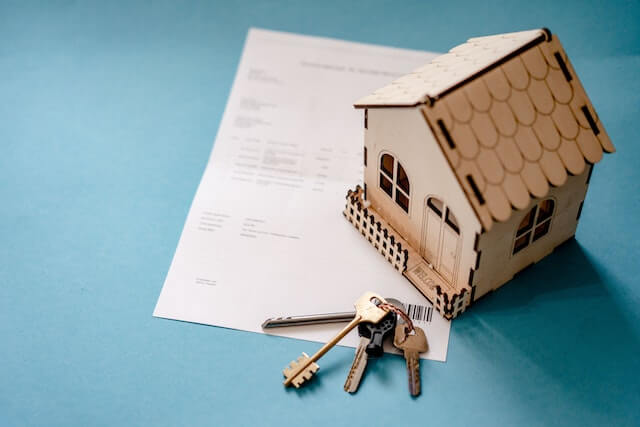Investing in real estate is a smart move for those looking to diversify their portfolios and achieve long-term financial success. Being a landlord has its advantages but it can also be a complicated process, requiring a substantial initial investment, extensive research, and patience during the purchasing process. Fortunately, there is a way to make the process easier – by utilizing real estate leverage. But what exactly is real estate leverage, and how does it benefit investors?
What is Real Estate Leverage?
Leverage techniques are used by people and businesses worldwide. But what exactly is real estate leverage? It refers to borrowed capital or other financial tools utilized to amplify the potential return from a real estate investment. However, while the potential for good returns is likely, it is not guaranteed. For example, investors can experience more losses than gains if home prices decline.
There are different ways for investors to use leverage to buy real estate. Here are a few different types of real estate leverage to look into if you are looking for a financing solution for your investment.
Types of Real Estate Leverage
Investors often turn to mortgages to gain leverage in real estate due to its ease. However, there are various sources of real estate leverage to consider. Here are a few of the most popular options for investors to examine.
Mortgages
As briefly stated above, mortgages are a prevalent form of real estate leverage as they are widely used for primary residences. Acquiring a mortgage can be accomplished through various financial institutions, including banks, credit unions, and even online mortgage lenders, making it an accessible option.

Portfolio Loans
For those seeking a mortgage, a portfolio lender can be an alternative option to conventional mortgage providers. Portfolio lenders, typically smaller financial establishments, have more relaxed underwriting standards if you compare it with that of larger institutions. However, they assume higher risks and therefore, usually impose higher interest rates. Despite this, they offer easier eligibility requirements and greater flexibility for experienced investors.
Home Equity Loans or HELOC
Leveraging existing property investments can be achieved through a home equity loan or a HELOC (home equity line of credit). A HELOC operates similarly to a credit card, with your property being the collateral. In contrast, a home equity loan functions like a secondary mortgage, providing you with a fixed amount to repay over a set period. These options are available for both primary residences and rental properties.
Business Credit
Many investors are unaware they are eligible for business credit cards and credit lines. These can be a valuable tool for financing real estate investments, whether to purchase a property outright or for down payments, repairs, or growing your rental business through marketing or management services in the US. By utilizing business credit, investors have the potential to realize new opportunities in the real estate market.
Private Loans
For investors who desire leverage and have favorable relationships with business associates or individuals willing to provide financial support, obtaining a private loan may be a viable option. This type of loan can come from various sources, such as friends, family, business partners, or other real estate investors. Establishing a formal loan agreement is essential to prevent miscommunications and establish clear terms.

How Can Real Estate Leverage Benefit Investors?
Now that you have a better idea of what real estate leverage is, it is time to know the benefits it can give real-estate investors. Here are a few of the best advantages of leveraging.
Quicker way to Grow Your Portfolio
Leveraging allows for a faster growth of your investment portfolio compared to solely relying on saved funds to purchase properties outright. With leverage, the requirement is just a down payment for the loan, enabling you to potentially own multiple properties with affordable monthly payments.
Rental income opportunity
Investors typically use their leveraged properties for rental purposes, which allows them to not only cover the payments for the loan but also earn some profit. One way to do this is by renting out the property as a vacation rental, attracting high-paying tourists. This approach enables simultaneous loan repayment and profit generation. Long-term rentals are also a good option because they can provide steadier monthly income through efficient rental collection.
Finding tenants is made easier with the use of platforms like Padleads. Landlords and rental agents can publish a listing on the website. Since Padleads allow its users to syndicate their listing to other popular websites, the listing could get a wider reach and get the attention of potential tenants.

Shielding Yourself from Inflation
Inflation can often lead to increased prices, but owning real estate can be a protective measure. With a mortgage loan, the amount owed remains fixed and does not fluctuate with inflation, which means that even if there is a decrease in the the dollar’s value, the monthly payment on the loan remains constant.
Risks of Real Estate Leverage
Real estate leveraging can offer numerous benefits, but it also entails certain risks. Failure to repay the loan can result in the loss of leveraged properties. In order to understand these risks associated with real estate leveraging, educating yourself on the subject is very important.
Positive Cash Flow is not a certainty
When investing in a rental property, it is crucial to keep in mind that rental income is never a certainty. There are various risks involved, such as extended vacancies or the need to significantly reduce rental rates. Before making a leveraged property investment, investors must carefully evaluate the potential outcomes by developing a comprehensive plan and researching the property location thoroughly.
Failure to pay can lead to the loss of assets
Investing in a leveraged property carries the risk of financial losses if one fails make payments. In the worst-case scenario, the property may be foreclosed and, if it does not sell for its full value, lenders may pursue the individual’s personal assets. The consequences of foreclosure can be severe, including a significant decrease in credit score and difficulty in obtaining loans in the future.
There could be a decline in Property Values
It is important to note that property values can fluctuate and decrease, depending on market conditions. When this happens, it can become difficult to maintain loan payments if the value of the property has dropped. A situation where the amount owed is more than the property’s worth can lead to financial hardship for the investor.
Tips For Using Real Estate Leverage to Your Advantage
When leveraging real estate to grow your rental business, it is important to proceed with caution and keep a few things in mind to ensure success. Here are some tips to help you leverage real estate to your advantage:
- Avoid leveraging without a down payment. This can be risky for both you and the lender, so make sure to include a down payment in your investment strategy to make sure there’s no over-leveraging on your part.
- Use conservative estimates when calculating cash flow. Factor in low rent amounts and high expenses to ensure you have an accurate understanding of your finances.
- Start with minimal leverage when first investing in real estate. If you’re just starting out, it’s best to use as little leverage as possible to gain a solid foundation and understand the basics. Get a feel on how it’s like having a leverage and keeping up with your dues.